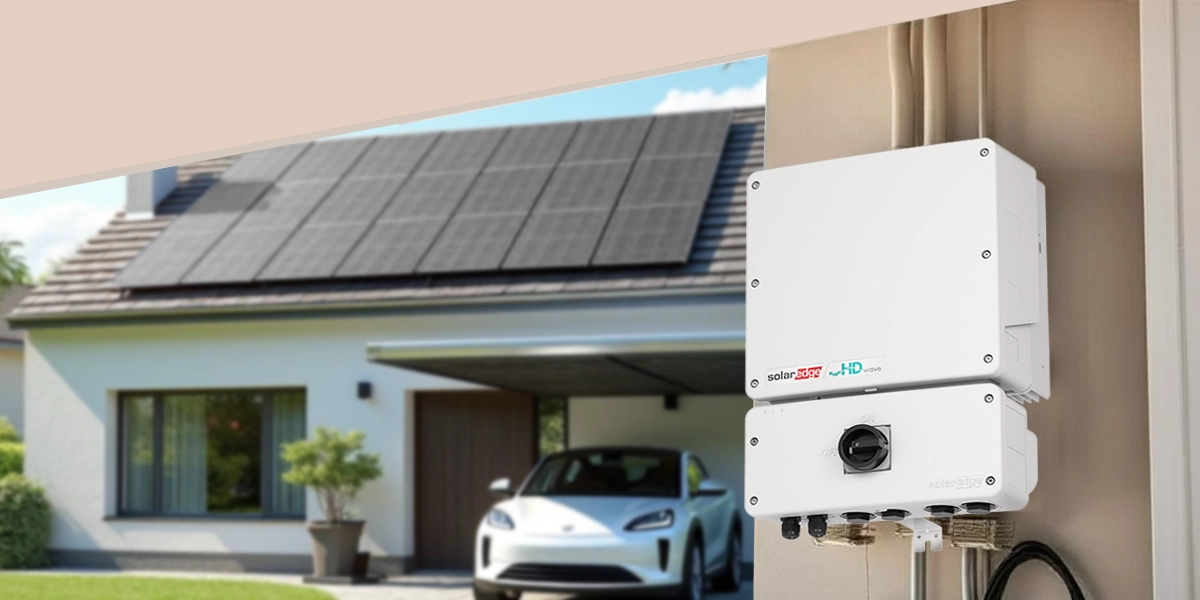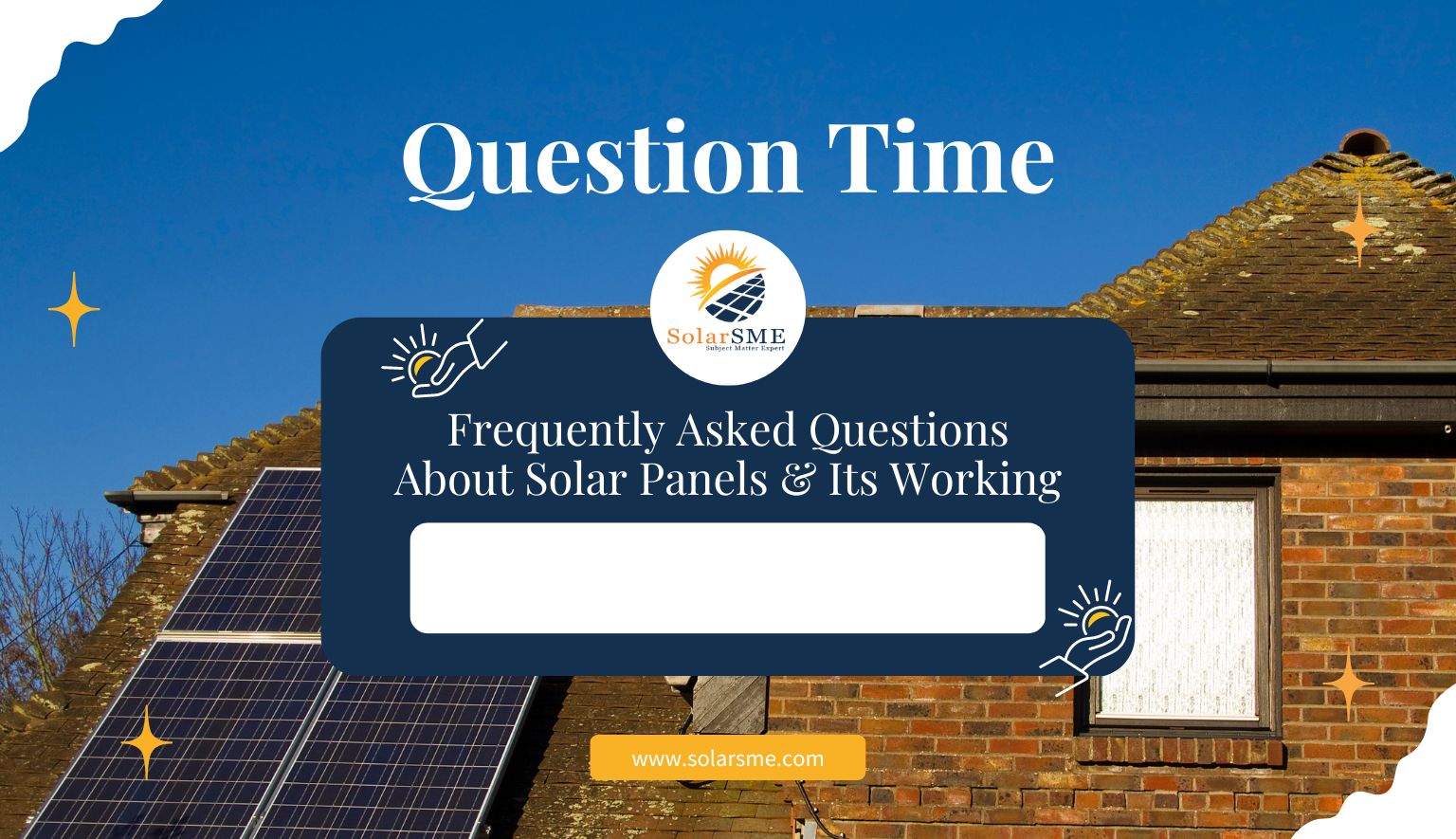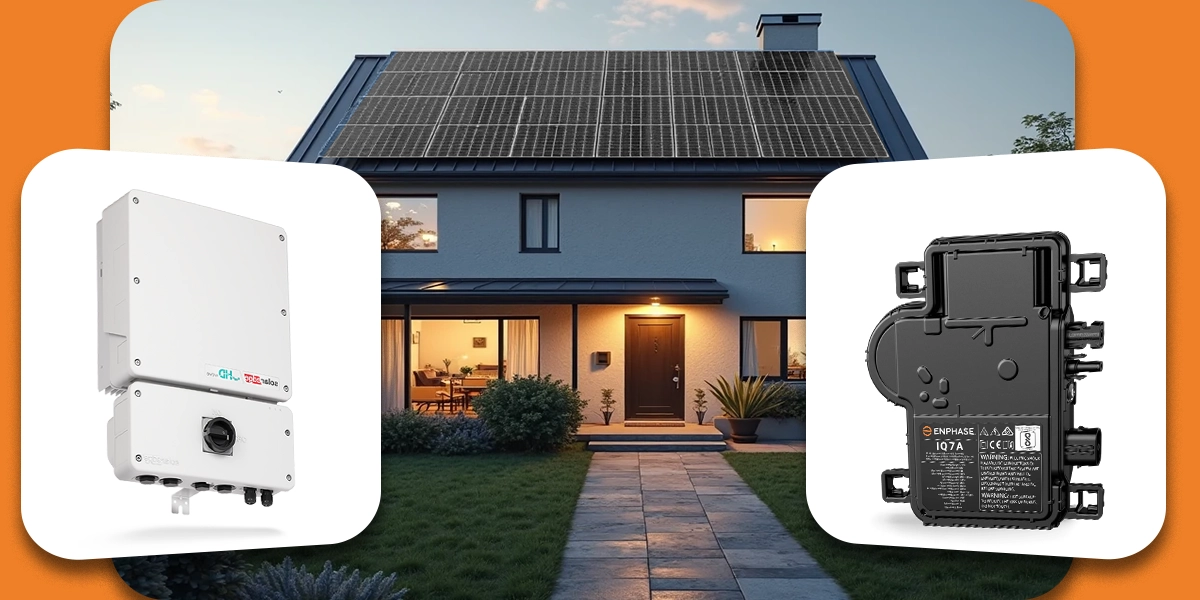- Updated On: June 20, 2025
Solar Inverters Guide: How to Size an
Inverter for a Solar System?
When a homeowner decides to go solar, they often focus on solar panel brand, solar installation place, solar orientation, etc. It is smart to consider all these factors to maximize your solar output. However, a “solar panel inverter” is another essential component of a home solar energy system and plays a vital role in supplying power for use. They are mostly considered to be the brains of solar PV systems. Solar inverters convert the AC power from the modules into useful DC power, which you utilize to power your appliances. Without it, you cannot utilize any electricity that your rooftop solar produces. While designing a solar panel system for a home, the solar inverter size is an important consideration for ensuring the system’s efficiency.

Several types of solar inverters are available on the market. If you are concerned about what size solar inverter you need, this article is for you. We will guide you through the main types of solar inverters for your home, along with their pros and cons. Also, we will assist you with some tips of inverter sizing for maximum performance.
What is a solar panel inverter?
Solar inverters are also known as solar converters. Your solar PV system generates direct current (DC) electricity, while we need AC electricity to run our home appliances. The prime purpose is to convert DC power into AC power. You can use this electricity in your home’s or business’s circuits.
The solar inverters use maximum power point tracking (MPPT) to optimize the efficiency of the solar modules and manage the flow of electricity from the solar panel array, storage battery (if available), and electrical grid. Inverters also manage the voltage and frequency of the AC electricity to render it stable and safe for use.
An inverter is an electronic box that gets installed on the roof above your house, in a garage, or in the laundry, while your solar panels are installed on the roof to get maximum sunlight. But they must be installed in shaded areas to increase efficiency and longevity.
How do solar inverters work?
When your panels absorb sunlight, they generate DC power that flows into solar panel inverters through connecting wires. It includes a transformer, an electromagnetic device that changes the voltage level of the current.
Transistors are devices that turn on and off quickly. A transistor is compelled to change direction when DC electricity reaches an off transistor. This back-and-forth process converts the DC electricity into AC.
The inverter sends the AC power to the electric panel in your home. Either your solar battery, if you have one, or the grid will use the electricity if you don’t need it.

Why do you need an inverter for solar panels?
One of the vital roles of the solar panel inverter is to maximize energy production. Solar panels produce DC electricity, which is not sufficient for home appliances. The inverter converts DC electricity to AC. A good inverter will make a solar power system more efficient by up to 20%. Furthermore, they regulate the frequency and voltage of electricity produced by the solar panels to ensure it is safe for use. They monitor the system for faults or failures and shut it off when needed to prevent damage. Furthermore, it also offers monitoring and management capabilities for the system. The majority of modern inverters come with a built-in monitoring system that allows users to track the performance efficiency of their solar power system in real time. This simplifies fault tracking and makes necessary interventions for the system to operate at maximum capacity.
What are the different types of solar inverters?
There are four main types that your home or business solar PV system is likely to have:

String Inverters:
It connects multiple strings to a single central inverter; that’s why it is also known as a central inverter. The electrical current flows from solar panels to the string inverters, which make power available for home appliances after converting it into AC power. They are the most affordable option for homeowners as they provide a consistent supply of current and require basic roof layouts.
Hybrid Inverters:
They are a combination of PV inverters and battery inverters and are available in straight-string and optimized string configurations.
Microinverters:
In the case of microinverters, a small inverter is attached to each of the solar panels. The conversion of DC to AC power happens right in the panels. This type is better for maximizing energy production for complex roof layouts like roofs facing multiple directions or roofs with shading issues.
What are power optimizers?
A power optimizer is a combination of both a string and a microinverter. They work with a single central inverter, just like a string inverter, with a small inverter attached to each of the panels. Power optimizers are ideal for homes with complex layouts like chimneys, gables, and other obstructions. They are also suitable if you are looking to maximize solar production without investing in expensive microinverters.

What size solar inverter do I need?
They are available in a wide range of sizes. Like solar panels, its size can be indicated in watts (W). A certified solar installer like Solar SME will consider three main elements while determining the size of yours. These are

Size of Solar Array:
The most important factor is the size of your solar array. Your inverter must be able to manage all of the power generated by the array. As a rule, your inverter’s size needs to match the DC rating of your solar panel system. For example, if you are setting up an 8-kW system, you may anticipate that the suggested inverter will be approximately 8000 W.
Location:
Your home location impacts the output of your solar panel system; it is also a critical factor in solar inverter sizing. In regions with more sunshine and moderate temperatures, they are usually sized to be closer to the total wattage of the solar array to manage the array’s near-maximum power output. On the other hand, your solar array is less likely to generate the maximum power output specified by the DC rating under standard testing circumstances (STC) if it is exposed to lower levels of solar radiation or high temperatures that reduce panel efficiency.
Roof/Ground Orientation & Angle:
The size of your solar inverter will depend on the location and design requirements of your solar array. The amount of electricity your solar array can generate will depend on factors like the tilt and azimuth at which it is installed. The amount of sunlight that reaches the array will also be impacted by environmental conditions like dust, shade, etc.
When determining the total production of your solar panel system, a professional solar installation company will consider these factors, equipment efficiencies, etc. Each will have an impact on your system’s overall derating factor. Higher derating factor solar panel systems can afford smaller inverter capacities relative to array size.
How to calculate a solar inverter size?
The size may exceed or be below your solar arrays DC rating. The array-to-inverter ratio is calculated by dividing the maximum AC output of the inverter by the DC rating of the solar array. Inverter manufacturers and solar system designers generally do not advise a ratio greater than 1.55. You may consider a larger array-to-inverter ratio if your solar panels aren’t producing maximum power. It makes sense to oversize your solar array with the inverter capacity, as lower-wattage inverters will be less expensive.
Oversizing an array is not recommended, as it may result in clipping. When your solar panels generate more DC than the inverter can manage at any one time, clipping happens. When this happens, the inverter will limit the amount of energy it’s converting, resulting in solar PV losses. On the other hand, if you install a big solar panel inverter, it will not produce the desired amount of electricity.
In conclusion, a home solar panel system will only perform efficiently and maximize your savings if you install the right solar inverter. A trusted local solar installer like Solar SME can design a tailored solar energy system according to your specific needs and budget. You can book a FREE consultation or get a quote with our smart solar calculator.
Related Articles:
As the world strives to reduce carbon emissions, a rise in demand for renewable energy sources can be seen.
When the word- solar panel- knocks on your ears, frequent questions come into mind concerning solar panels’ cost, installation cost, working mechanism, energy efficiency, reliability, durability, and many more solars.
With best system reliability and energy efficiency, two industry competitors are competing: Enphase vs SolarEdge. Both offer leading-edge technology with unique designs, microinverters vs. power optimizers. Learn more about which is best for you!



